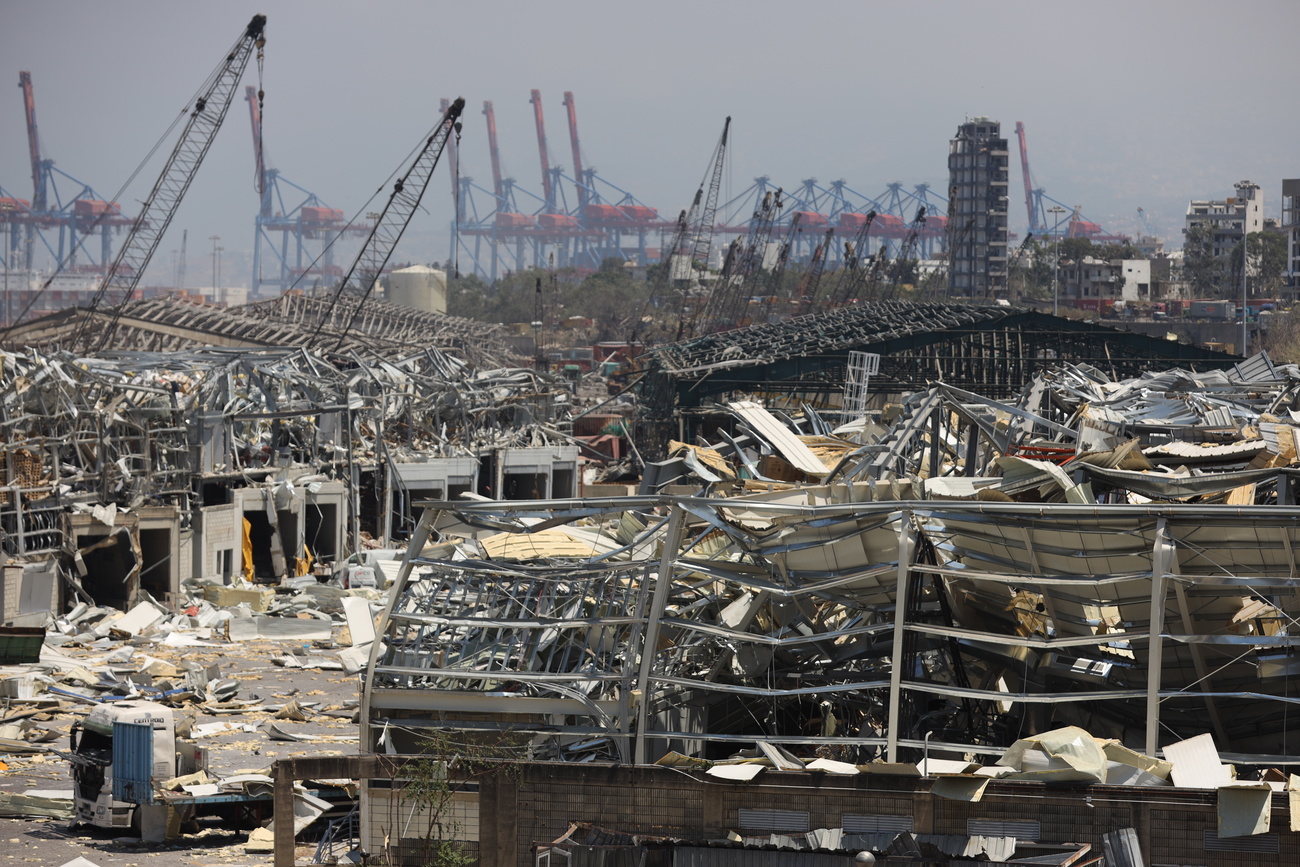
Switzerland sends team of experts to Beirut

A group of around 10 experts is headed to Lebanon to support the Swiss embassy in Beirut, which was damaged in a massive explosion on Tuesday.
A plane is due to leave the Swiss capital Bern on Thursday morning carrying engineers, infrastructure specialists, a security advisor, a logistician, a telecommunications manager and a psychologist.
More than 4,000 people, including the Swiss ambassador to Lebanon and local embassy employees, were injured in the explosion at the port of Beirut.
According to the Federal Department of Foreign Affairs (FDFA), the experts will support the Swiss embassy staff. The Alpine nation’s diplomatic representation has suffered extensive damage due to the explosion and staff are currently working out of another location. As many buildings in the Lebanese capital have suffered enormous damage, the Swiss infrastructure engineers will also be able to provide their expertise to the Lebanese authorities.
Switzerland will contribute a sum of CHF500,000 ($550,381) to the Lebanese branch of the Red Cross to help with emergency response measures. The humanitarian arm of the Swiss Confederation is also examining the possibility of sending humanitarian assistance to the region, following an appeal for international aid launched by the Lebanese government.
As early as Tuesday evening, Foreign Minister Ignazio Cassis and Swiss President Simonetta Sommaruga expressed their solidarity with the Lebanese people. Cassis had indicated Switzerland’s readiness to offer assistance to Lebanon.
At present, the FDFA has no information on Swiss victims of the explosion apart from embassy staff. Around 1,500 Swiss nationals currently live in Lebanon (80% are dual nationals) and around 20 Swiss tourists have made contact with the embassy.

In compliance with the JTI standards
More: SWI swissinfo.ch certified by the Journalism Trust Initiative



























You can find an overview of ongoing debates with our journalists here . Please join us!
If you want to start a conversation about a topic raised in this article or want to report factual errors, email us at english@swissinfo.ch.